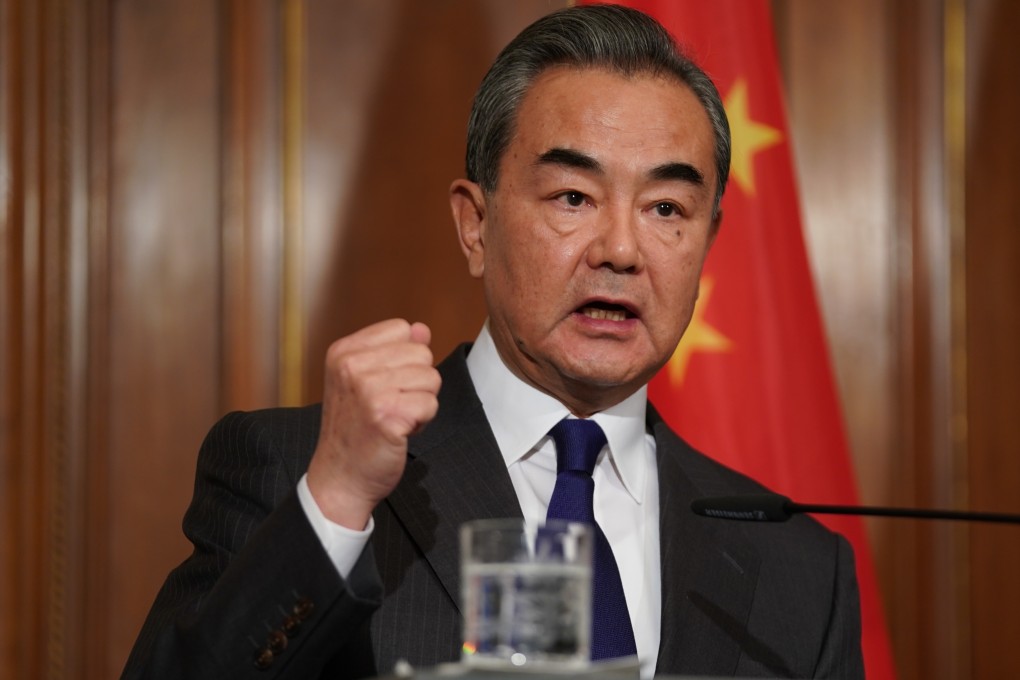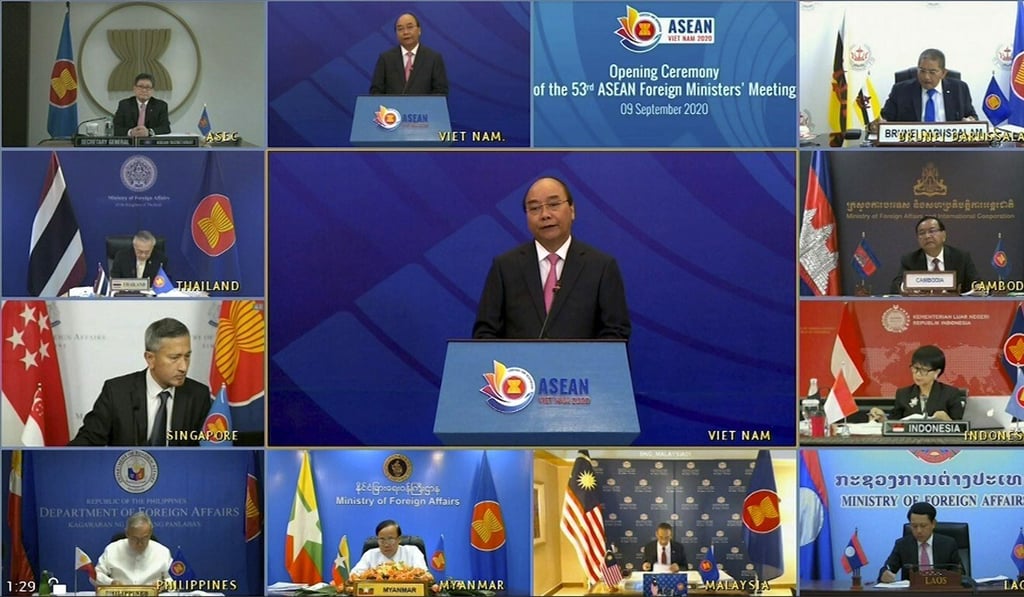Advertisement
China’s Wang Yi slams US for being ‘biggest driver’ of South China Sea militarisation
- Disputed waters in the spotlight as Asean foreign ministers kick off virtual summit
- Vietnamese PM mentions concerns over dispute but stops short of criticising China in name
Reading Time:4 minutes
Why you can trust SCMP

A four-day series of virtual meetings among Asian foreign ministers kicked off with some diplomatic fireworks on Wednesday, as China’s Foreign Minister Wang Yi lashed out at the US for its hardened position on the South China Sea dispute.
Also participating in the meetings was Washington’s top diplomat Michael Pompeo, who said in a statement that he and several regional counterparts reasserted their concerns over China’s “aggressive actions” in the waters.
Regional observers had expected that the 10-nation Association of Southeast Asian Nations (Asean) bloc that convenes the annual meetings would seek to de-escalate tensions over the sea row in post-meeting statements.
Advertisement
The top diplomats are conferring via video link from their home countries in light of the coronavirus pandemic.
Earlier, Prime Minister Nguyen Xuan Phuc of Vietnam – the current chairman of Asean – sought to emphasise in his opening speech that cooperation on medical supplies in the midst of the pandemic as well as speeding up economic recovery were among the group’s key priorities.
Advertisement

Advertisement
Select Voice
Select Speed
1.00x